If you’re visiting Switzerland this year, don’t miss the top 10 things to know before traveling to Switzerland in this article, because in it I’ll be sharing tons of tips and must-read notes for fittest timers. Switzerland is one of my favorite countries in the world. I visited Switzerland a ton of times over the past few years, so through trial and error, I’ve picked up a lot of different tips and must-knows, and I’m going to share them all with you today in this tutorial.
1. Know your Train Etiquette

So there’s going to be a few tips wrapped up in this one, but if you’re going to Switzerland, chances are you’ll be taking the Swiss trains to get around. And good news is that the train system is incredible, but there are a few differences and things that you should follow if you want to, you know, not get those looks from Swiss citizens. So the first one is to make sure that you are quieter on the train than you’re used to.
So me being American and likely a lot of Americans, I think we’re just used to talking louder. Our standard kind of talking voice is louder and almost seems like we’re shouting to Swiss people. So my husband is Swiss, and when we’re on a train, I often find that he shushes me a lot.
And I feel like I’m talking totally normally and at a normal volume, and he says she’s screaming. So I would say the first thing to consider is to be a little bit quieter on the Swiss trains. You’ll see that everyone kind of just has their headphones in; they’re reading.
People aren’t really talking, not even very much. So just be a little bit quieter than you used to be. The next thing to consider on Swiss public transportation is that when you’re getting in and out, you’ll see that everybody stands to the side and waits for people to get off the train before anybody gets in.
If you’re from a big city like New York, you know that the doors open and people kind of just pack right in. But in Switzerland, everyone’s very respectful of the doors. Everybody stands to the side, gives people a chance to get off, kind of takes a beat, and makes everybody’s off the train before they themselves go into the train.
So just make sure that you respect that, because if you get on before everybody’s off, people will, you know, look at you, and they may say something. And the last thing on the trains is don’t put your feet up on the seat. This isn’t necessarily specific to Switzerland, but I’ve noticed that nobody puts their feet up on the seat.
Don’t take up two seats. Don’t put your feet up. It’s kind of gross.
You shouldn’t do it anywhere, but you definitely shouldn’t do it in Switzerland. People are really, really respectful. The trains are really, really clean.
They keep it that way. So just, you know, you’re in a new country. Respect it.
Don’t put your feet up on the seat. This is one of the most important things to know before traveling to Switzerland.
2. Travel Adapters are Different! ( Top Recommend in Best Things to Know Before Traveling to Switzerland)
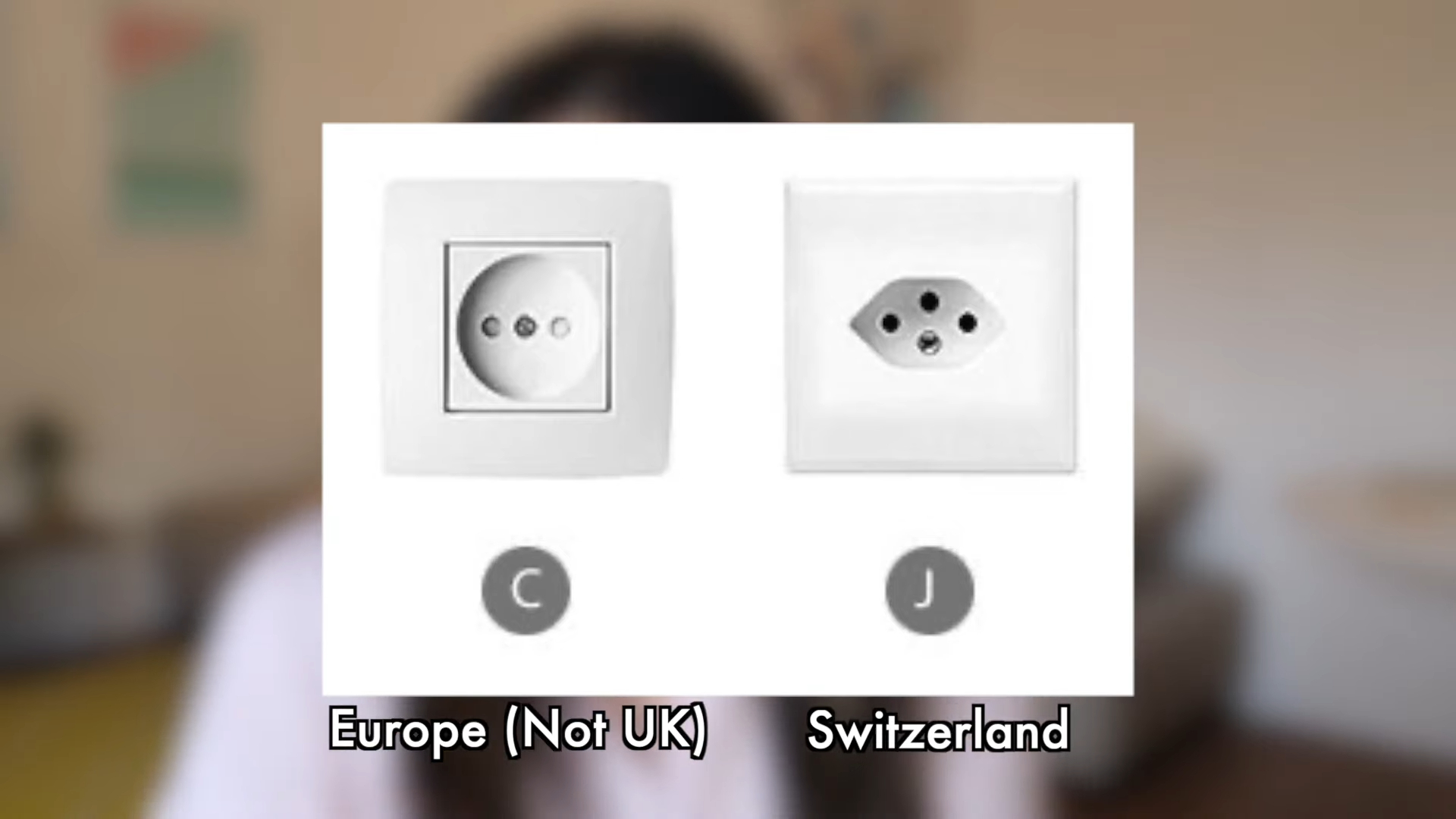
Okay, the next one that you may not know, and I actually did not know before I went to Switzerland, and it was kind of a headache once I got here, is that the plugs in the outlets are not the same. So Switzerland is not in the EU, and they have a lot of their own rules and nuances.
So if you’re on a multi-country trip and you’re going from Germany to Italy to France and you’re going to go into Switzerland and you think that all of your same adapters will work, they will not. Switzerland has different ones. So this is like a standard European adapter here.
So you see, it has two prongs and, like, a pretty rounded edge. This is the European one. The Swiss one is similar but different.
So the Swiss one has the three prongs, and it’s a little bit skinnier. So the Swiss one will actually fit into other European outlets, but European plugs will not fit into the Swiss outlet. So put information on the photo about the exact one you’re looking for.
I think it’s easier if you’re just going to get it on Amazon before you get here, because if you get it when you’re here, you know, you get it in one of those tourist shops. It’s always more expensive, but that’s a little bit of a headache if you’re not prepared for it. So just something to note if you come to Switzerland: they do not use the same outlets that are used in the rest of continental Europe.
This is one of the most important things to know before traveling to Switzerland.
3. Public Restrooms Aren’t Free
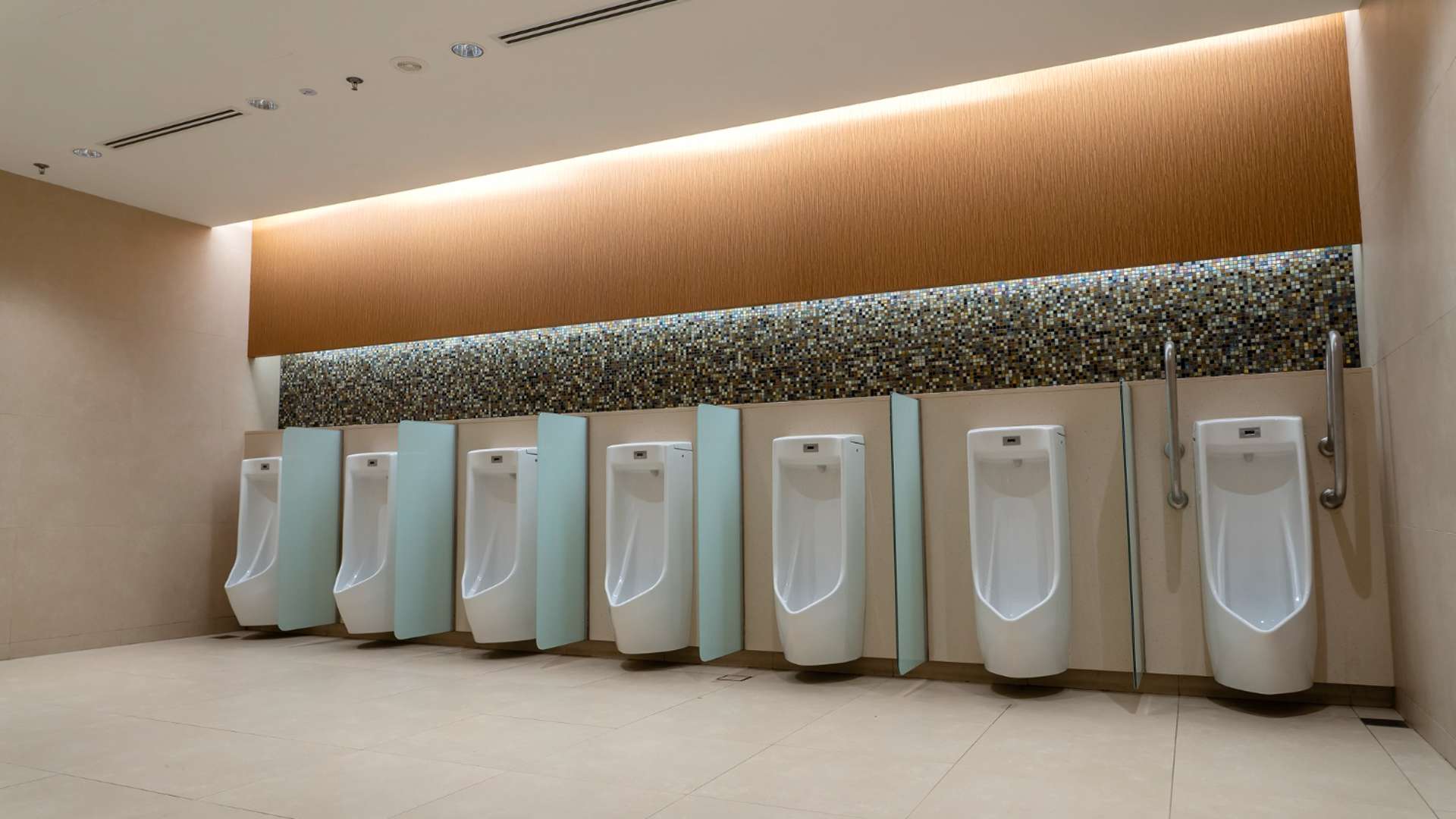
Okay. So the next tip is about public restrooms. So the great news is that Switzerland is really, really clean and has very nice public restrooms that I haven’t had a problem going into.
But with that, you usually have to pay for the public restrooms. So if you’re in a main city area or at a train station and you see the restroom, it will likely not be free, and you will need to pay for it with change. So if you have bills that won’t be accepted, just make sure you have some change with you because you will need that if you’re going to the restroom.
And what I have found in Switzerland and actually quite a bit of Europe versus the United States is that people are a little bit less open to you, just like walking into a restaurant or something and letting you use their bathroom. You can try it in a McDonald’s, but if you just walk into a bar or a restaurant and say, Okay, can I use your restroom? They usually say no. So just make sure you have coins for those public restrooms.
So you don’t have to, you know, have an emergency.
This is one of the most important things to know before traveling to Switzerland.
4. Switzerland is very Expensive

Okay. So the next tip, you know, relates a little bit to that last one.
Not exactly, but Switzerland is a very, very expensive country to live in. And with that, it is very expensive to travel here.
And there are certainly ways to save, but I do think that it’s important to know when you’re planning a trip to Switzerland if it really is as expensive as people say it is. There are ways to do it inexpensively, and you can plan that, but Switzerland as a whole is really, really expensive. So I know that I grew up in New York City, and that’s where I was living before moving to Switzerland.
And I was still really kind of shocked by how expensive things can be. So some kind of average item is that if you go get a coffee, it’s going to run you like five or six francs. And even something like a McDonald’s big Mac meal will be like 15 francs.
And the reason I tell you that is because it’s, you know, something that’s all over the world and is usually the cheapest food you can get. So with that, just know that you’re going to be spending a little bit more money in Switzerland than you may expect. So just do some planning.
You can budget for that. And ahead of time, the last kind of thing I’ll note there is like the travel adapters, Switzerland, not in the EU, and they like to do things differently. I think you’ll notice it’s a theme that the Swiss are very proud of their own culture and tend to be different from the rest of Europe.
They are not in euros. So if you were coming from France, Germany, Italy, or any of the bordering countries, or anywhere else within Europe, into Switzerland, you cannot use your euros here. There may be some places in Lake Zurich or Geneva that are geared towards tourism and very touristy and will accept euros, but you will not get a good exchange rate.
The exchange rate will likely be one-to-one. So you’d be losing money on that. So my recommendation is either use your ATM card and pull out some francs once you get here or take them out within, you know, your home country.
Also, cards are really widely accepted here. So you can use a card if you have a travel card that doesn’t have an international exchange fee, but know that if you’re taking out euros for your whole trip, you can’t use them in Switzerland. And if you can’t, I really don’t recommend it.
You won’t get the best rate.
This is one of the most important things to know before traveling to Switzerland.
5. Tipping (20% Isn’t Necessary)

So the next thing I want to talk about is tipping.
So this is mostly geared towards anybody watching from North America or the U.S., like myself, because Switzerland will be similar to the rest of Europe, but the tipping in Switzerland is not anywhere near the same as it is in the U.S. So to me, I was always a little bit shocked at how little of a tip my husband would leave when we would be in restaurants, but he reminded me that people in Switzerland are really paid a fair living wage in some parts of Switzerland. And the minimum wage can be up to, like, 25 francs an hour. And waiters and waitresses are paid for that.
So they are compensated fairly. So they are not relying on your tips to survive. So this kind of goes with everything.
This goes with hair salons, taxis, and things like that. I think the standard tipping practice is at most 10%, but what I see most people do is just round up. So if you go out to a restaurant and your bill is like 43 or 44 francs, you can round up and give them 50 francs, but you don’t need to tip like 20 or 30% sometimes, even like you do in the U.S. So just know that when you’re in Switzerland, they are paid fairly.
They are compensated, they have a living wage, and they’re not relying on your tips to survive. So because of that, the tipping is much, much less than you’ll be expecting in the U.S.
This is one of the most important things to know before traveling to Switzerland.
6. Don’t Jaywalk or Cross at a Red
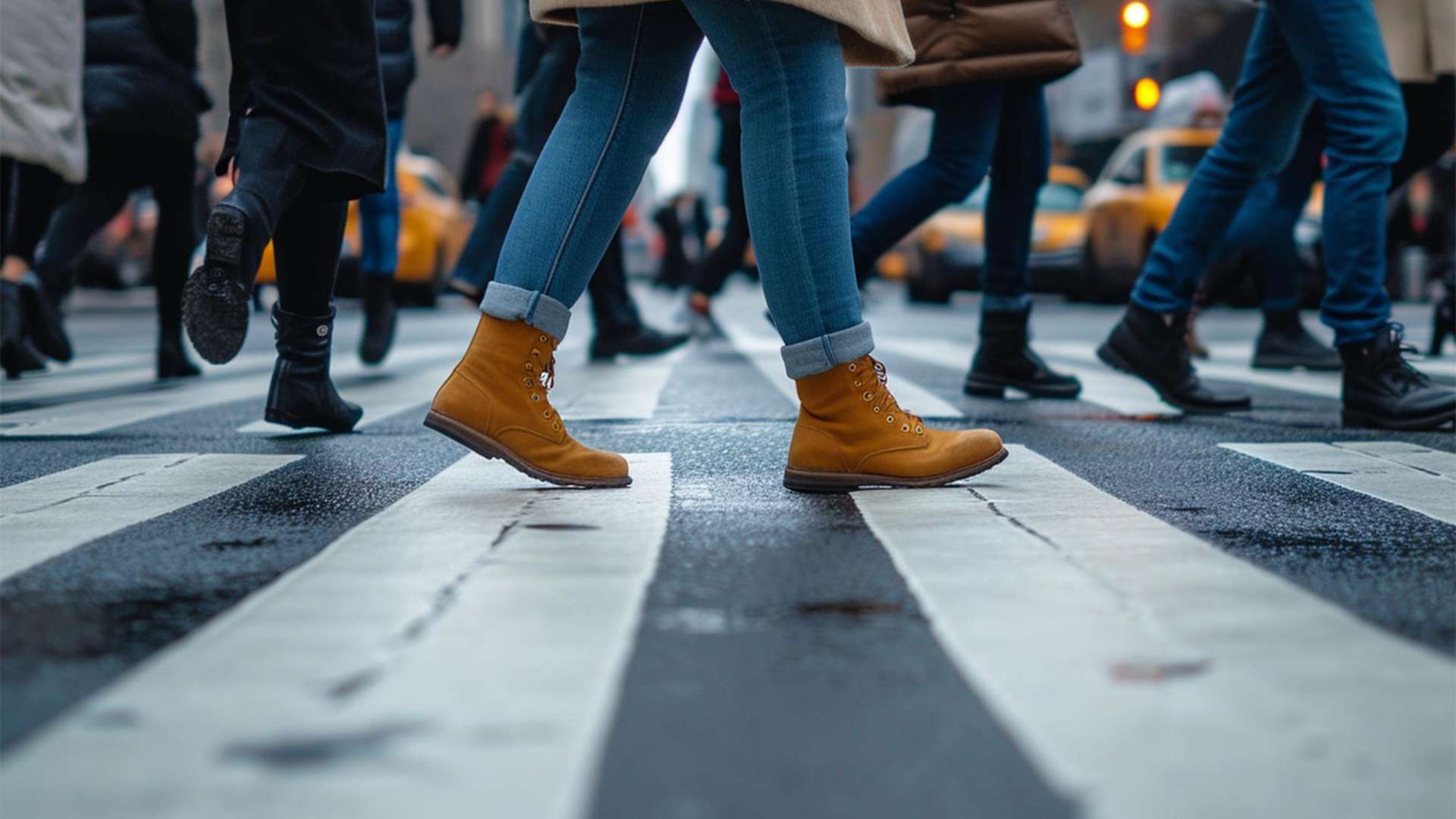
So the sixth tip here is a little bit of a do not do, and that is, do not jaywalk across the light when it’s red. I have to say that sometimes I do this myself, but you will not see any Swiss people doing this.
They respect the rules, and I think this is similar in Germany as well, which I’ve also lived in, but you will not see people crossing the light when it’s red, and you will not see people jaywalking even if there is no car to be found and you’re somewhere in the middle of the countryside. The Swiss people will respect the rules. So if you don’t want somebody to say something to you and you just kind of want to blend in with the country you’re visiting, I do recommend waiting at the lights and not jaywalking.
This is one of the most important things to know before traveling to Switzerland.
7. Take your shoes off in a House
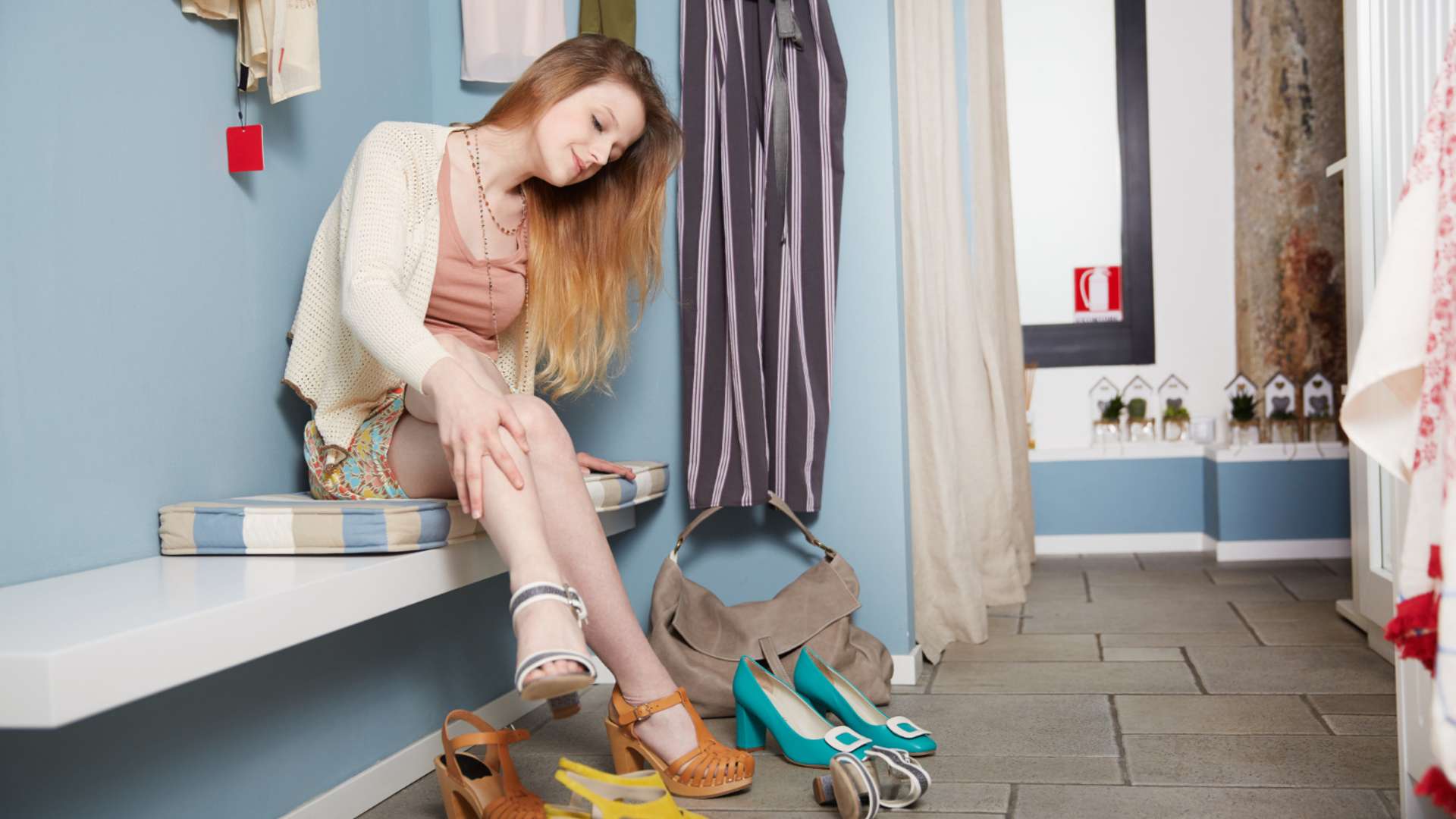
Okay, so the seventh tip might only be useful for some of you. So if you are planning on visiting a Swiss person in their home, it’s also useful if you’re staying in an Airbnb, and that is to absolutely, absolutely take your shoes off when you go into someone’s house. So if you’re staying in an Airbnb, make sure you do that because the Swiss are very, very strict.
I’ve noticed kind of almost across the board about taking your shoes off in someone’s home. So, coming from New York, I think we’re really casual about this. So my husband would almost point out that he would feel weird if he took his shoes off and walked into someone’s apartment.
If he’s wearing socks, everyone else has their shoes on, unless it’s like winter or something. Everybody keeps their shoes on, at least from my experience in the U.S. You could tell me if you’ve had a different one. But in Switzerland, I will say that people are really strict about taking your shoes off.
And you’ll actually even see it in some people’s houses, and I think it’s quite cute; they’ll have slippers at the front door. I can put a photo of what they look like here. I think the French word in Switzerland for them is pantoufles.
Yeah, so take your shoes off, especially if you’re in an Airbnb. You want to be respectful of someone’s home. Or if you happen to know Swiss people and you’re visiting them, make sure to take your shoes off because otherwise they will likely just tell you. And then, you know, in some people’s homes, the slippers at the door for you to wear as a guest are a little bit of a signal to take your shoes off when you go into their house.
This is one of the most important things to know before traveling to Switzerland.
8. Limited Opening Hours
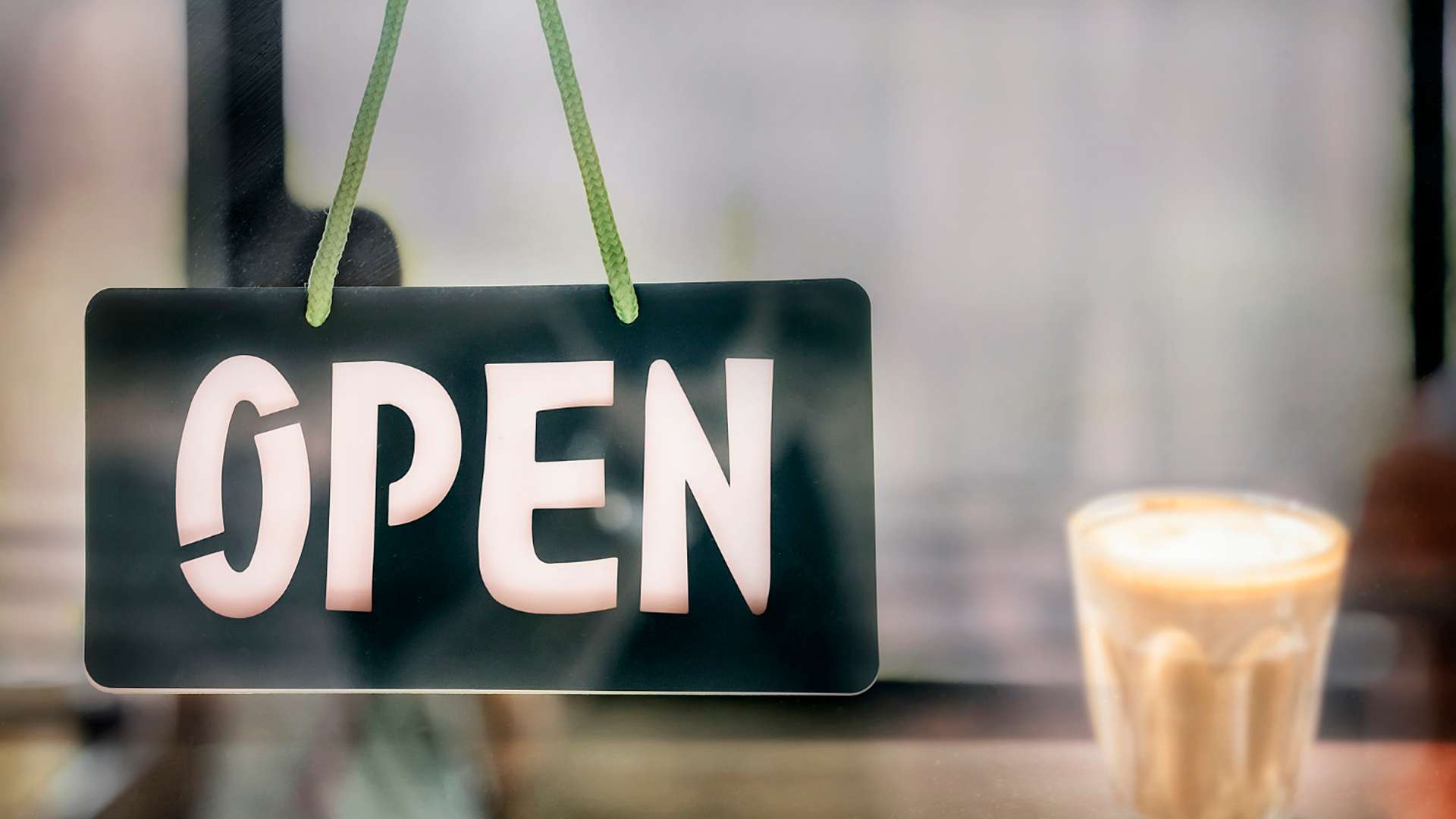
Okay, so this next one is to everybody who is not necessarily a planner; you need to be in Switzerland. And that is because the opening hours are much, much different than you will likely be used to based on where you’re coming from. So in Switzerland, everything will be closed on Sunday.
So if Sunday is a day that you’re planning on doing your shopping for tourist souvenirs or you’re going to go hiking and you plan on stopping in a grocery store to get some lunch or anything like that, that will be closed on Sunday. You can go to a main train station, and they may have a grocery store open depending on where you are. But just be aware of the opening times in advance. So Swiss grocery stores in most places tend to only be open Monday to Saturday, and they usually close around 7 p.m.
Some close around 8 p.m. But just make sure you’re cognizant of those hours because they are much, much different than what I’m used to in the United States. And then imagine that some places are different as well.
You still live in Berlin, and in Berlin, you had kind of longer hours as well. So the Swiss are quite conservative with the hours because they do respect work-life balance, which is great, but make sure that you plan ahead of time. Also, what I will say is that they tend to eat dinner a little bit earlier.
So kitchens and restaurants might close at 9 p.m. So if you’re a late eater, just make sure that you know when you’re going somewhere, you have a reservation, and you know when their kitchen closes. You can’t really walk in at like 8.50 p.m. and the restaurant closes at 9 p.m. and expect them to serve you like you might in some other places; they won’t.
So I would just say across the board, be cognizant of those store hours and plan accordingly. I would hate that, you know, somebody has this trip booked and the only day that they have to kind of go shopping and buy souvenirs and things that they want to take home is a Sunday, and then unfortunately, everything in Switzerland will be closed. So just make sure to be aware of that.
Sundays are a great day to go hiking, but they are not a great day to go shopping.
This is one of the most important things to know before traveling to Switzerland.
9. Four National Languages
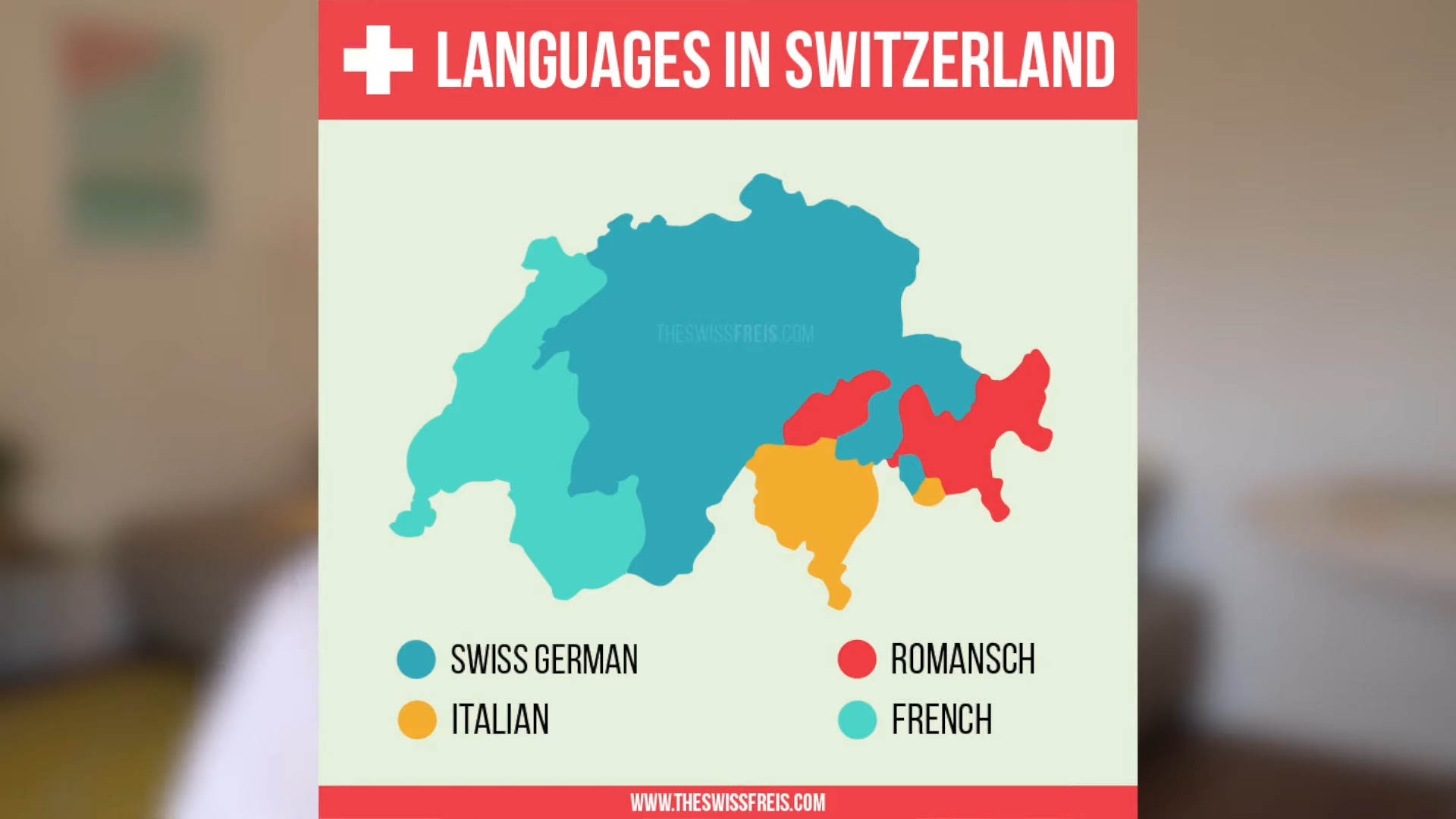
Okay, so if you’re planning a trip to Switzerland, you’ll likely have noticed that the Swiss speak four national languages. So the reason that this is a tip is that I just want you to be prepared based on where you’re going.
So if you’re in Western Switzerland, they will speak French. Most of Switzerland—about two-thirds—speak German, and this is where the tip really comes in. So the German that they speak in Switzerland is not the German that you know; if you took German in high school or college and you feel really ready to communicate, that is not the German that is spoken here.
That German is called Hochdeutsch, or High German. What is spoken here is Schweizerdeutsch, which is a Swiss-specific dialect. So where this gets tricky is that even if you’re very proficient in German, you will not understand Swiss German.
So that can be a little frustrating if you were prepped to kind of come to Switzerland and practice your best German; that will not be the German that is spoken. So the good news is that you have a few options here. Everyone who speaks Swiss German by and large can also communicate in Hochdeutsch.
So they will, you know, I think immediately recognize if you are not speaking Swiss German and switch to High German for you. So that’s one option. But I will say a lot of people can also communicate in English.
It’s always nice to have some phrases in the local language. But with Swiss German, that’s really, really tough because even from Canton to Canton, they have very different kinds of dialects, but there’s just different nuances in each of the different cantons. So it’s something to be aware of: if you’re ready to speak German, the German that is spoken here is not a German you’re going to understand.
So we’ll put a map here of the different regions and different languages. So you know where in Switzerland they are speaking what language, because it’s always appreciated to at least say hello, goodbye, and maybe know how to ask for a check in the language of where you’re visiting. But you might need to lean on English a little bit more, especially in the Swiss German part, if you are not comfortable communicating in Swiss German.
This is one of the most important things to know before traveling to Switzerland.
10. Bring a Refillable Water Bottle
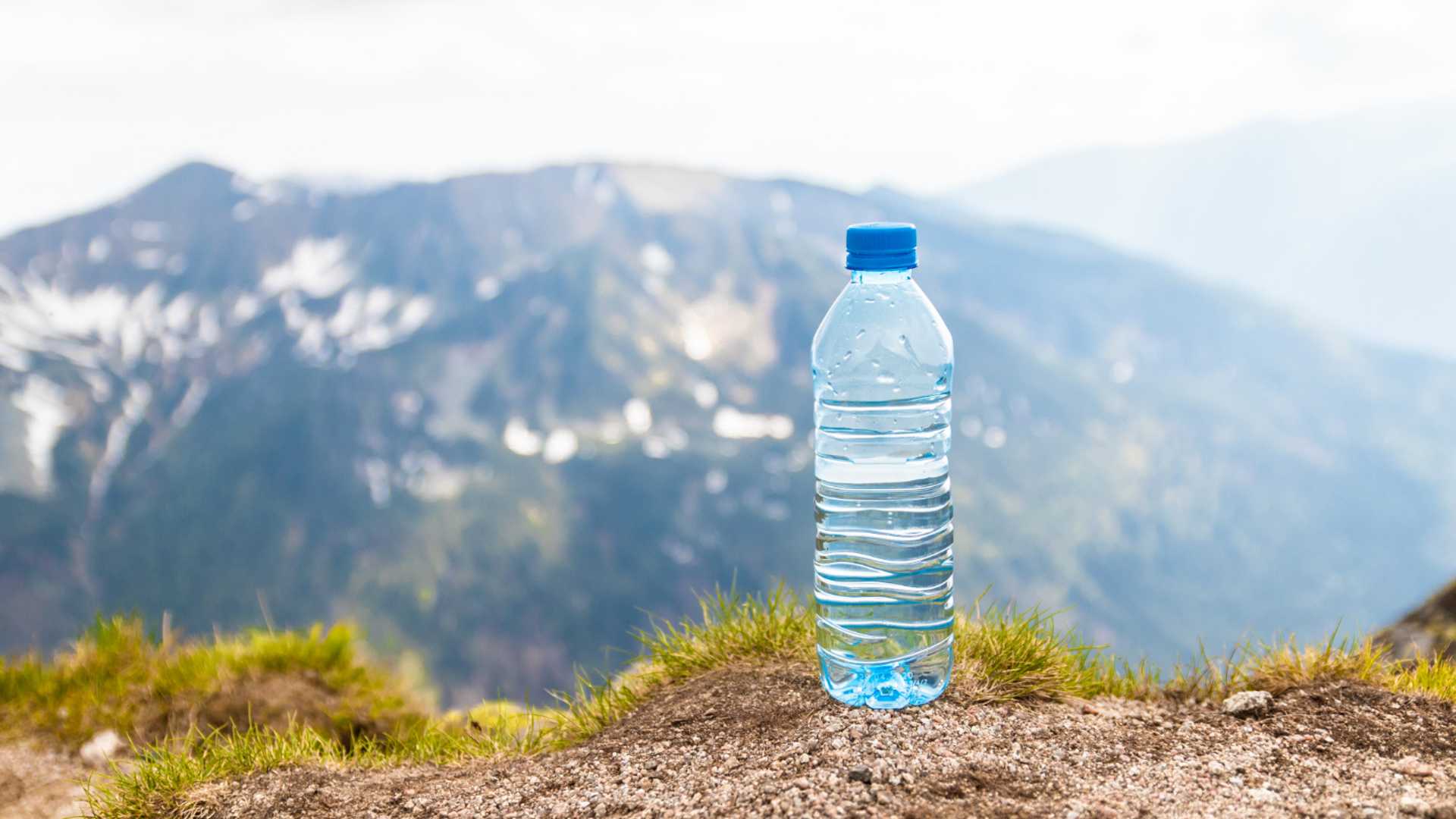
Okay. And tip number 10 is to make sure to bring a water bottle. I think I’ve said this in a few videos now.
So you guys might think I’m crazy with the water fountains, but there is fresh, amazing drinking water all over Switzerland, even in villages in the mountains and even in remote parts of Switzerland. I’ll put some kind of B-roll of what these water fountains look like, but you do not need to go buy plastic water bottles. It is a waste of money.
There’s water everywhere. Just bring a water bottle, fill it up, and make sure that you’re not wasting plastic. It really is such a waste when I see people going to the store and buying plastic water bottles and bringing them into their hotel.
You don’t need it. There’s water all over Switzerland, and it’s amazing, clean, fresh drinking water. Probably some of the best I’ve ever had.
So make sure to take advantage of that. Just like a little bonus tip. Okay guys.
So those were my 10 things that you need to know before you travel to Switzerland. Let me know if you like this article and if you want to see more like it. I’m really hoping that I can keep giving you guys the information you need to plan trips to Switzerland to visit. Hopefully this year, tourism is going to be possible again, but if it’s not, we can still keep dreaming.
So that being said, thank you guys so much for reading our articles. I really, really loved sharing my experience living in Switzerland with you, and I want to keep sharing it.
This is one of the most important things to know before traveling to Switzerland.
Please check our more Travel Guide about Switzerland:
